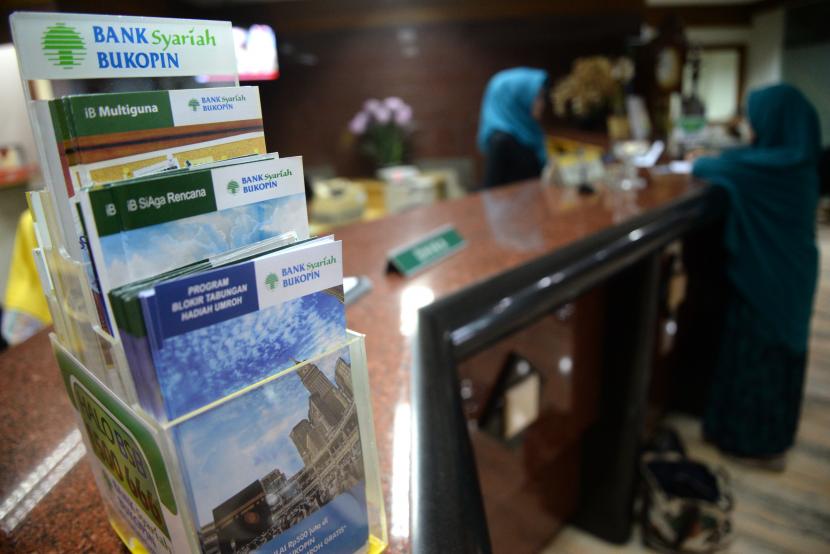REPUBLICA.CO.ID, MANILA -- The development of Islamic banking in the Philippines aims to benefit all Filipinos, the central bank says, as it works on awareness programs to expand access to financial services in accordance with Islamic law.
TheBangko Sentral ng Pilipinas has stepped up the promotion of Islamic finance in the country, following a decision in August, by the State Monetary Council to approve the first Islamic banking unit license for conventional banks.
The decision expands the possibilities for foreign and private banks looking to enter the market. Previously, it was limited to the Philippines' state-owned Al-Amanah Islamic Investment Bank.
“BSP has made significant strides in promoting the development of Islamic banking and finance in the country,” said the assistant governor of the central bank, Arifa A. Ala, as reported by Arab News on Thursday (19/10/2023).
“The promotion and development of Islamic banking and finance will equally benefit all Filipinos, including Filipino workers abroad. It looks to attract foreign investors who tend to operate in the Philippines under the Islamic finance business model, expand OFW payment gateways and remittance channels, and increase the availability of other financial services,” he explained.
Growing
Meanwhile, The Financial Services Authority (OJK) in Indonesia noted the growth of the national sharia banking industry, especially after experiencing a slowdown due to the effects of the pandemic and uncertain global conditions.
“The national sharia banking industry managed to record quite good growth. Position as of June 2023, the share of the sharia banking market in Indonesia grew to 7.31 percent of the total national banking industry,” Deputy Chairman of the Board of OJK Commissioners Mirza Adityaswara said at the Ijtima Sanawi event of the Sharia Supervisory Board last weekend.
Mirza said that the growth was supported by 13 sharia public banks, 20 sharia business units, and 171 BPRS. He said that this is with a distribution of assets of 65.78 percent of Sharia public banks, 31.68 percent of Sharia business units, and BPRS of 2.54 percent.
Of the sharia capital market sector, as of the end of August 2023, the market share of corporate sukuk products, state sukuk, and sharia mutual funds reached 12.7 percent. Meanwhile, the sharia stock market share has reached 56 percent of all shares listed on the Indonesia Stock Exchange.
Mirza added that Indonesia has also received international awards four times in a row. The award is the Best Islamic Capital Market given by the Global Islamic Financial Award (GIFA) from 2019 to 2022.
With the growth of sharia finance, Mirza sees challenges that must be faced. Especially related to the still low level said the development of the market share of the sharia capital market sector continues to grow.
Under these conditions, Mirza stressed, it is still necessary to accelerate the literacy rate and financial inclusion of sharia. This can be done with good collaboration between all parties.
“This needs to be done in order to reach the target of sharia economic and financial literacy that the Vice President has presented in the 6th National Consultation of the Sharia Economic Society (Munas MES) earlier this month, which is 50 percent,” Mirza said.
Earlier, Vice President Ma'ruf Amin targeted Indonesia's sharia economic and financial literacy could reach 50 percent compared to its current position of 23.3 percent. “I believe that, with the magnitude of Indonesia's potential, these figures can be improved, in fact, Indonesia's sharia economic and financial literacy in the future should be at least 50 percent,” Ma'ruf said during a speech at the 6th National Consultation of the Sharia Economic Society (MES) in Jakarta, Sunday (1/10/2023).
Ma'ruf said that with the increasing economic and financial literacy of Sharia, the acceptance and use of Sharia's economic and financial products by the people is increasing. That would increase the contribution of the sharia economic and financial sectors.
According to Ma'ruf, the current sharia economic and financial literacy rate of 23.3 percent is not ideal. The literacy rate also had an impact on the sharia financial market share in Indonesia, which is about 10.9 percent.
Ma'ruf insists that Indonesia's sharia economy and finance have so far achieved a lot of international achievements. He exemplified Indonesia's growing position on global rankings in sharia finance, Muslim-friendly tourism, and more.


